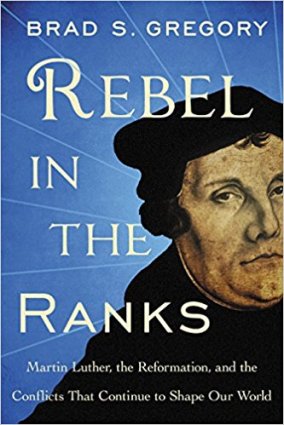 *This review was originally published over at The Englewood Review of Books. If you have a few minutes, please go check out some of their other reviews.
*This review was originally published over at The Englewood Review of Books. If you have a few minutes, please go check out some of their other reviews.
It’s now been five hundred years since Martin Luther sparked off the Protestant Reformation with the publication of his Ninety-Five Theses. Whether or not he actually pinned them to a church door in Wittenberg or just sent them to Archbishop Albrecht, the ensuing movement of reform and protest against aspects of Roman Catholic practices and beliefs that began with him ultimately shook the foundations of the Western church and led to both religious renewal—for both Protestants and Catholics—and sadly also centuries of strife, division, and bloodshed. To say the least, the legacy of the Reformation era that we’ve inherited is a complicated one.
In Rebel in the Ranks, University of Notre Dame professor Brad S. Gregory argues that this legacy was also for the most part unintended. He thinks many of the long-term outcomes of the Reformation would have surprised and even dismayed the Reformers themselves (1-2). The book begins with a rather narrow focus, exploring Luther’s inner religious struggles and what happened when he acted on them. By the end, though, the book’s horizon has expanded to a consideration of how the Reformation era as a whole shaped the emergence of modern Western society, focusing specifically on the eventual secularization of public life (13-14). Continue reading
